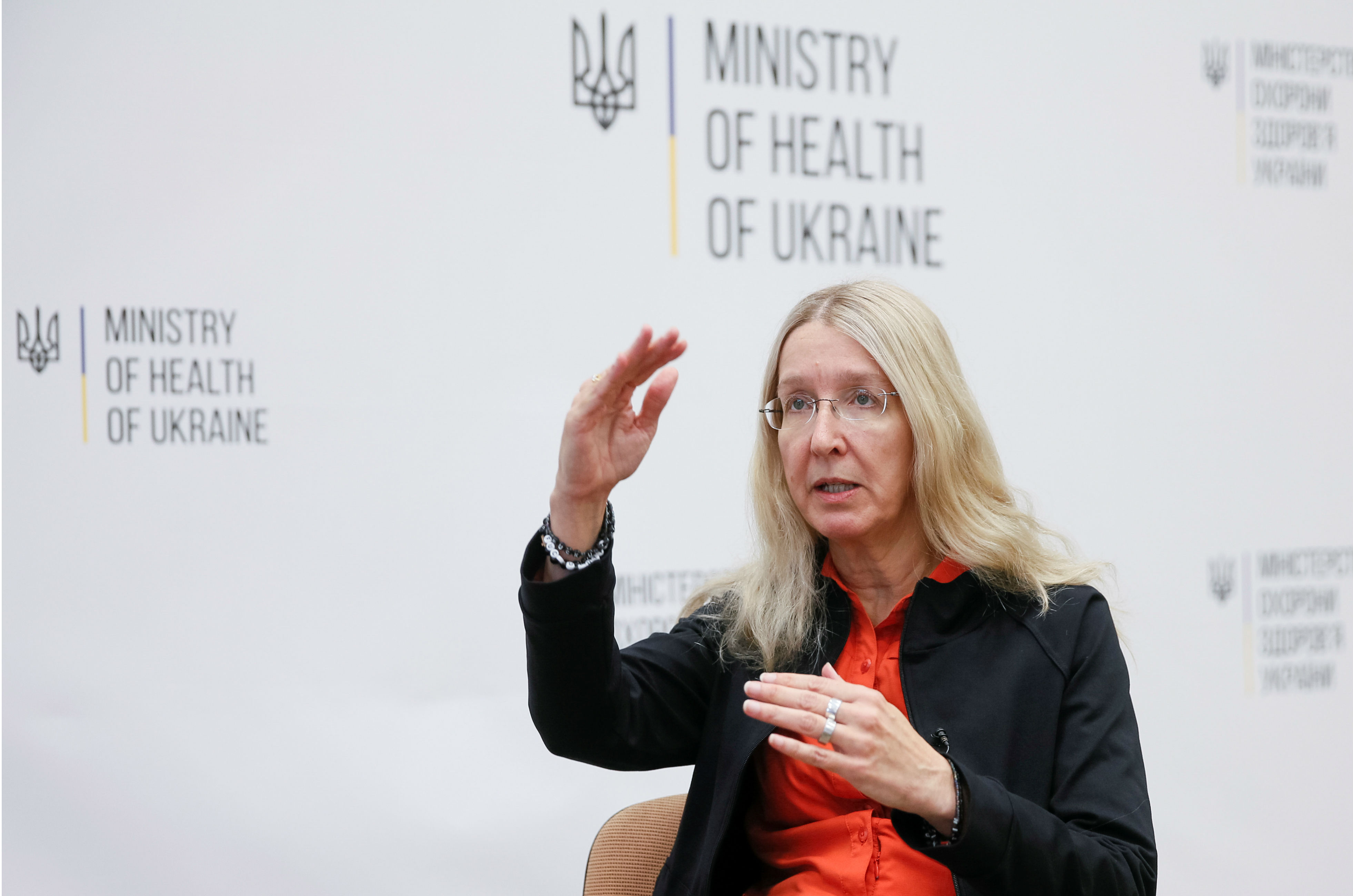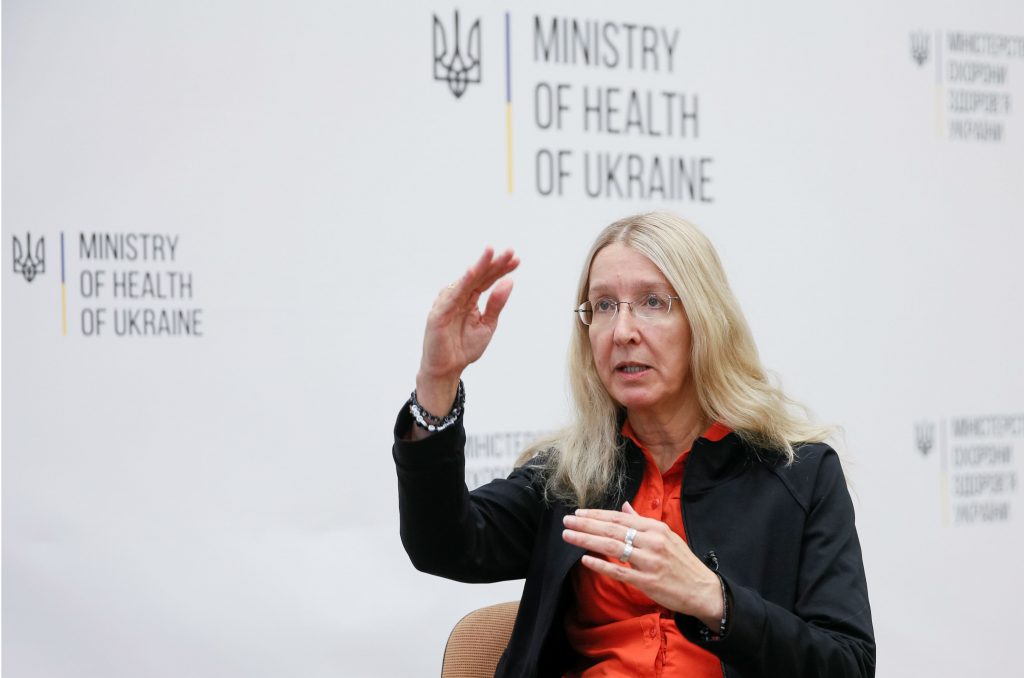 Ukraine got a serious black eye last week when its parliament dismissed the outspoken chairman of its Anticorruption Committee and nearly fired the head of its independent anticorruption bureau. But there’s a clear way it can recover. After anticorruption reform, fixing Ukraine’s dismal health care system is a second priority for the Ukrainian public. Pushing ahead with health care reform might help repair some of last week’s damage.
Ukraine got a serious black eye last week when its parliament dismissed the outspoken chairman of its Anticorruption Committee and nearly fired the head of its independent anticorruption bureau. But there’s a clear way it can recover. After anticorruption reform, fixing Ukraine’s dismal health care system is a second priority for the Ukrainian public. Pushing ahead with health care reform might help repair some of last week’s damage.
And luckily, there are distinct steps the government can take now to make real changes. On October 19, Ulana Suprun, the American-born doctor who is the acting Minister of Health in Ukraine, finally convinced parliament to pass far-reaching reform. There’s a big snag, however: President Petro Poroshenko hasn’t signed the bill yet, so implementation is delayed.
“There’s something going on within the presidential administration,” Suprun said in a December 11 interview; she was in Washington to meet with the World Bank and spoke with UkraineAlert for the first time since the bill passed.
Both Prime Minister Volodymyr Groisman and Poroshenko publicly supported the bill, but she suspects there’s political infighting between the two factions who opposed the bill.
Health care committee chair Dr. Olga Bogomolets was and is the problem, said Suprun. Bogomolets, a member of the Bloc of Petro Poroshenko, “has got the ear of the president,” and she’s been stirring up trouble with her doomsday scenarios, telling doctors that they’ll lose their jobs if the reforms pass.
In reality, doctors will make more under the new system, says Suprun. The guiding principle of her reforms is that the money follows the patient; the new system creates a National Health Service which eliminates an intermediary body between the budget and the service provider, and lessens opportunities for corruption.
There’s an easy solution to the foot dragging. If Bogomolets is indeed the problem with health care reform, parliament should consider removing her—just as it did Yegor Soboliev, chairman of the Anticorruption Committee, last week—and replacing her with Dr. Konstantin Yarinich or Sergiy Berezenko, who are also members of the parliamentary health care committee.
The suggestion came to me from a Kyiv-based analyst who requested anonymity, and it’s not a bad idea. Both Yarinich and Berezenko supported health care reform and are members of the Poroshenko Bloc, so it would be a fair swap.
But Suprun is anxious for another reason, as well: “We are getting down to the wire because of the elections.” Ukraine will hold presidential and parliamentary elections in 2019. She wants the government to have something real to show voters, and it will if she can get Poroshenko’s signature on the bill.
On December 27, Suprun plans to introduce a big package that will include a plan to create the NHS, a statute on how it will work, and an e-health system. She needs the signature of the Minister of Justice to move forward.
Suprun has had to put off the package’s implementation while she waited on parliament to pass the health care reform bill, but she’s got an ace up her sleeve. The budget code was written in a way to speed things up.
In April 2018, the Ministry of Health will begin launching the new system, with pilot programs “to work out kinks” in Kyiv, Lviv, and Poltava. “They’re doing these things before us,” she said.
In the summer, all medical facilities will be required to register as nonprofits with e-health systems. They will make twice as much per patient, and this incentivizes them to move as quickly as possible.
On July 1, 2018, the actual change in financing starts; in October, there will a second sign up for medical institutions, and a third in December. By the end of 2018, they will all have switched over. By the beginning of 2019, if they haven’t done this for primary care, they won’t get paid. In 2019, the financing will change for specialists, and in 2020 for hospitalization.
Suprun readily admits that it takes ten years to reform a system like health care. “However, we need some quick wins so people will see change,” she said. People will see immediate changes in emergency medicine, the licensing of physicians, and the introduction of international protocols, she promised.
It might sound technical, but the introduction of medical licensing can massively improve care. Once doctors obtain a medical license, they will be able to move between institutions, and health care institutions will have to compete for the best. This competition will improve care.
Unlike Britain when it rolled out its National Health Service, Ukraine will start measuring quality and satisfaction immediately. She said the ministry will examine medical records for rates of pneumonia and bed sores, which can indicate poor care. It will also poll people on ease of payment and the non-medical side of things to ensure the system works and people like it.
In the frequent conversations I’ve had with Suprun over the last year, she has repeatedly emphasized that she and her team have studied other national healthcare systems and will bring the best ideas back to Ukraine. It cannot come soon enough.
Melinda Haring is the editor of the UkraineAlert blog at the Atlantic Council. She tweets @melindaharing.
Image: Ukrainian acting Minister of Health, Dr. Ulana Suprun speaks during an interview with Reuters in Kyiv, Ukraine October 20, 2017. Picture taken October 20, 2017. REUTERS/Valentyn Ogirenko
